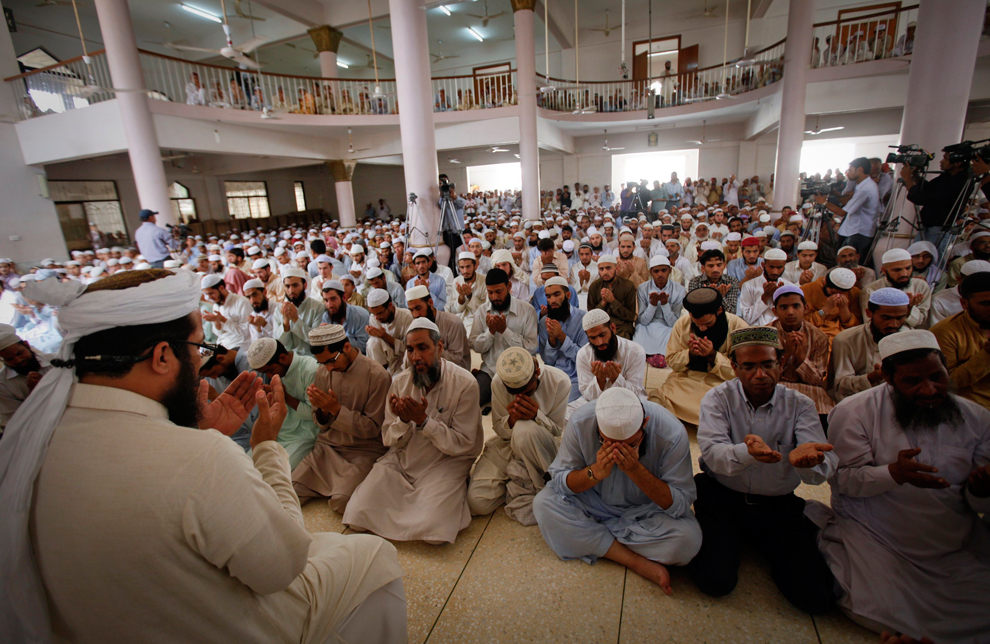
An imam at a Karachi mosque leads worshippers in a special prayer for the Pakistan cricket team ahead of their match against India, March 29, 2011. For many, victory against India is even more important than winning the tournament. (Athar Hussain/Reuters)
With infections nearing 2.6 million and more than 178,000 deaths worldwide, the novel coronavirus is not showing any signs of slowing down.
Countries around the world have been forced to shut down public spaces and suspend all mass gatherings by statutory orders in order to ensure social distancing, the only viable solution there exists in the absence of any cure for the novel coronavirus.
As far as Muslim countries are concerned, they have also been devastated by the coronavirus pandemic and forced to undertake strict precautionary measures.
All major Muslim countries have unequivocally directed their citizens to offer their prayers at homes amid the pandemic except for Pakistan.
With Ramadan just days ahead, the following countries have placed restrictions on Ramadan congregational gatherings and directed their citizens to pray at homes in light of different Ahadees:
Even the Jerusalem Islamic Waqf Council has decided to suspend congregational Ramadan prayers at Al-Aqsa Mosque.
Pakistan, on the other hand with its own unique take on Islam, has chosen to keep the mosques open to organize congregational Friday, Taraweeh, and Eid prayers despite the daily increasing tally of Coronavirus cases.
Though the government, after deliberating with senior clerics of all sects, has enacted certain conditions to enforce social distancing measures during congregational Ramadan prayers, the real impact of this decision could only be gauged after Ramadan. Implementation of such measures in rural areas is also close to impossible especially during the holy month and with limited resources.
Leading clerics like Tariq Jameel and Qibla Ayaz have also been explaining in detail what Muslims ought to do in times like these in light of Sunnah.
Unfortunately, most clerics have played down the fatal viral threat and several instances of public defiance of lockdown forced the government to agree to their demands.
Pakistan has always been a staunch proponent of Muslim unity. Sadly, it has chosen to act opposite to the Muslim world at a time when unity is most needed. Experts and doctors have asked the government to reconsider the allowance of congregational prayers since this could be the make or break decision in Pakistan’s fight against COVID-19.
Do you think Pakistan should have stood with Muslim world during the pandemic? Post your thoughts in comments section.